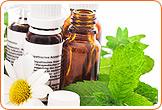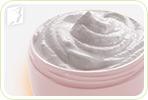Many women going through menopause suffer from vaginal dryness. Vaginal dryness can be generally uncomfortable, itchy, and cause pain during sex. One of the most effective treatments for vaginal dryness is hormone replacement therapy (HRT), which solves symptoms of menopause such as hot flashes, night sweats, vaginal dryness, and mood swings by increasing the amount of estrogen in the body.

However, many people look for alternatives to vaginal dryness. Two natural remedies people use are black cohosh and soy, although they are not effective for all women.
Causes of Vaginal Dryness
A decline in estrogen levels is the main cause of vaginal dryness. Menopause causes the moist lining in the vaginal walls to become thinner and dry out, which can lead to burning, bleeding, pain, and itching, especially during sex. Alongside hormonal changes during menopause, vaginal dryness can also be caused by:

- Autoimmune disorders
- Removal of the ovaries by surgery
- Smoking
- Radiation and chemotherapy
- Lack of arousal
Treating Vaginal Dryness with Soy and Black Cohosh
Black cohosh is a plant from the buttercup family that grows in central and eastern areas of the United States. Originally, it was used by Native Americans as a remedy for many conditions that affect women, including menstrual cramps, arthritis, hot flashes, sore throat, muscle pain, and menopause symptoms.
Black cohosh and soy are both plants that are rich in phytoestrogens. Phytoestrogens are plant compounds that act like estrogen when introduced to the human body. Because declining estrogen levels are what causes menopause symptoms, it may be that the phytoestrogens will increase estrogen levels and thereby reduce symptoms such as vaginal dryness. Soy also contains phytoestrogens, and soy-based foods include:

- Soymilk
- Edamame
- Tofu
- Miso
However, the phytoestrogens in soy, black cohosh, and other plants may be too weak to have an actual impact on vaginal dryness. There are many options available to treat vaginal dryness, but they are not all effective. Many women find that over-the-counter vaginal lubricants and moisturizers can provide a great amount of relief. You may wish to discuss possible treatment options with your gynecologist, especially if vaginal dryness is lowering your quality of life.
Sources
- National Institutes of Health. (2013). Vaginal Dryness Alternative Treatments. Retrieved December 1, 2015, from https://www.nlm.nih.gov/medlineplus/ency/article/002142.htm
- University of Maryland Medical Center. (2014). Black Cohosh. Retrieved December 1, 2015, from https://umm.edu/health/medical/altmed/herb/black-cohosh



